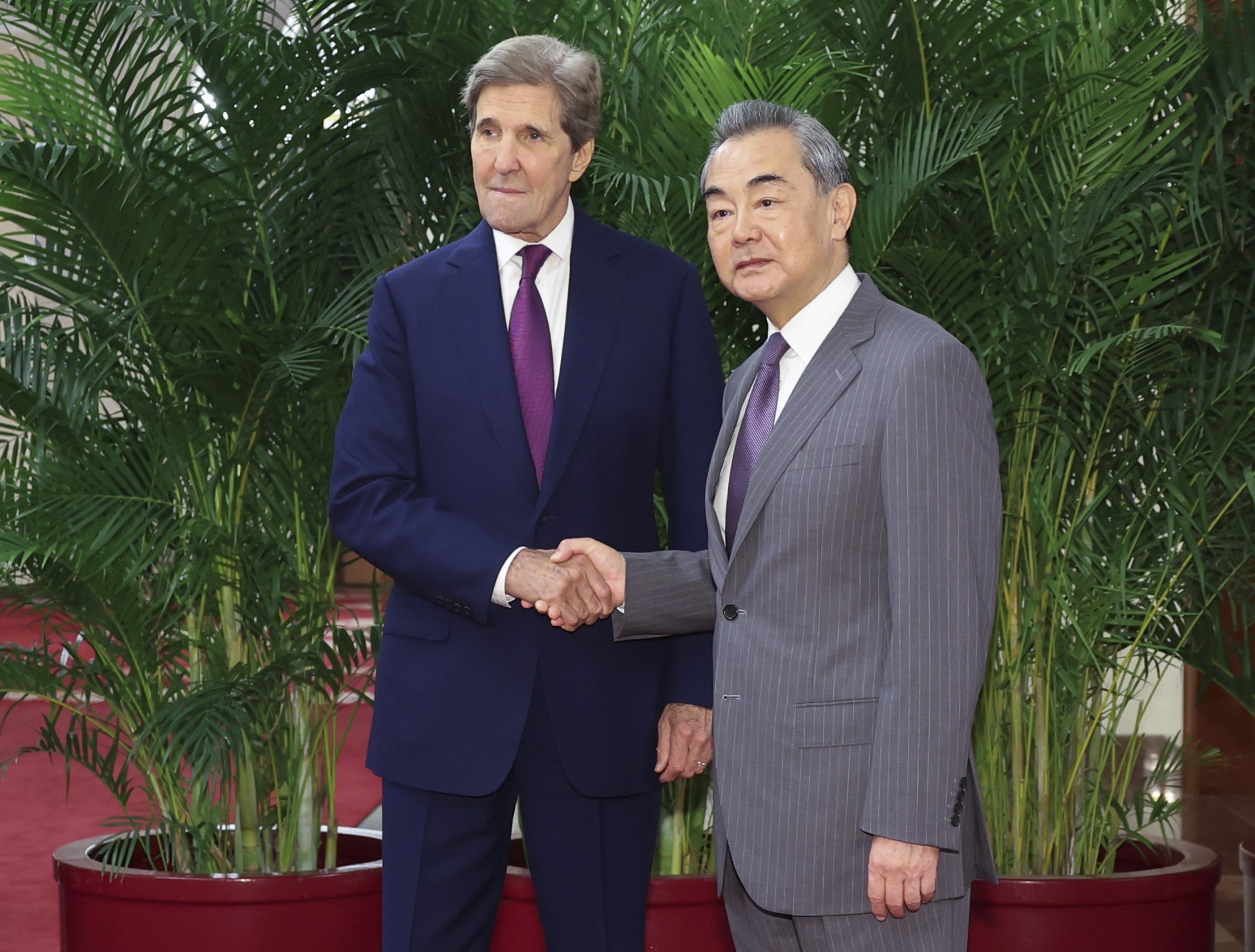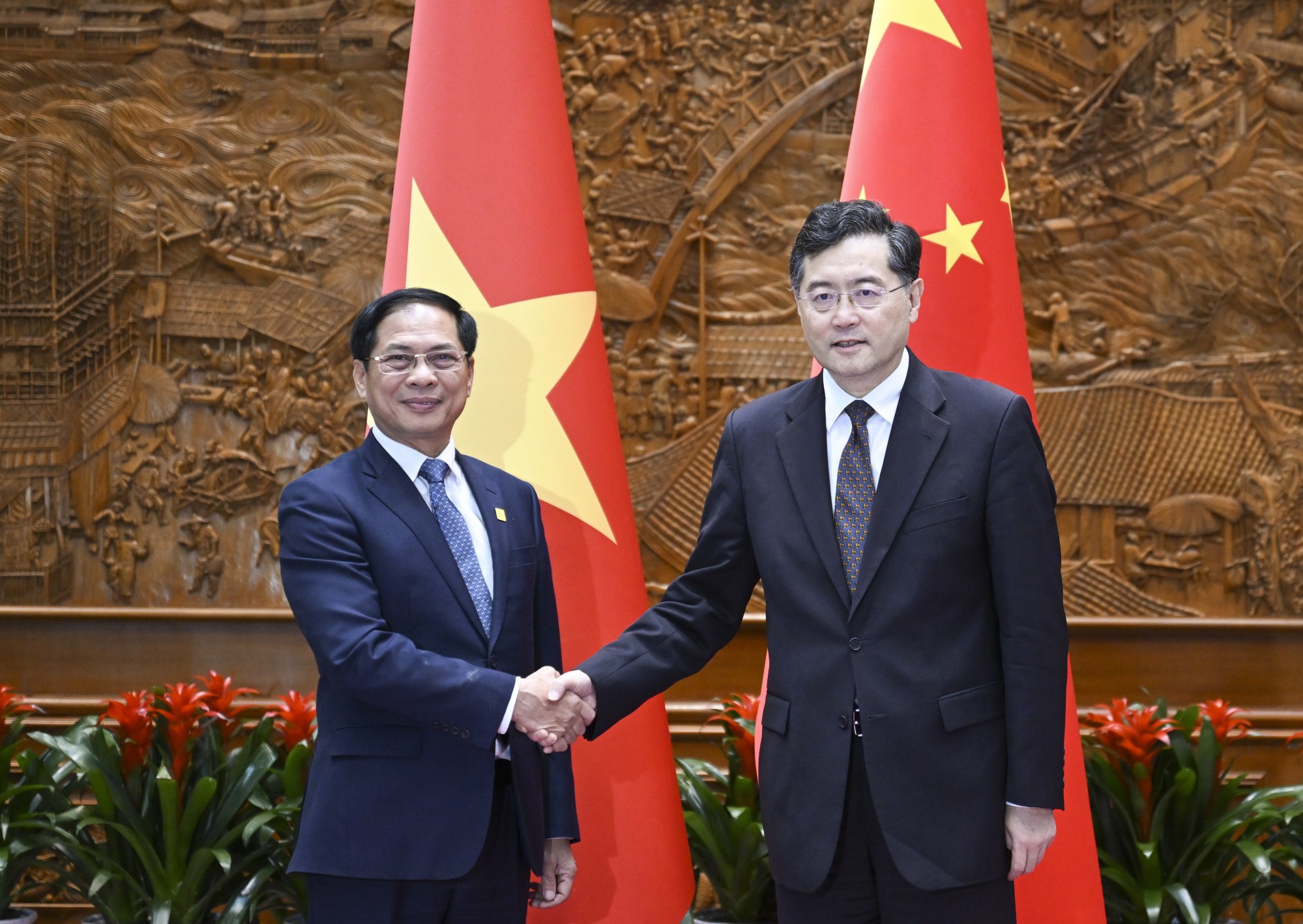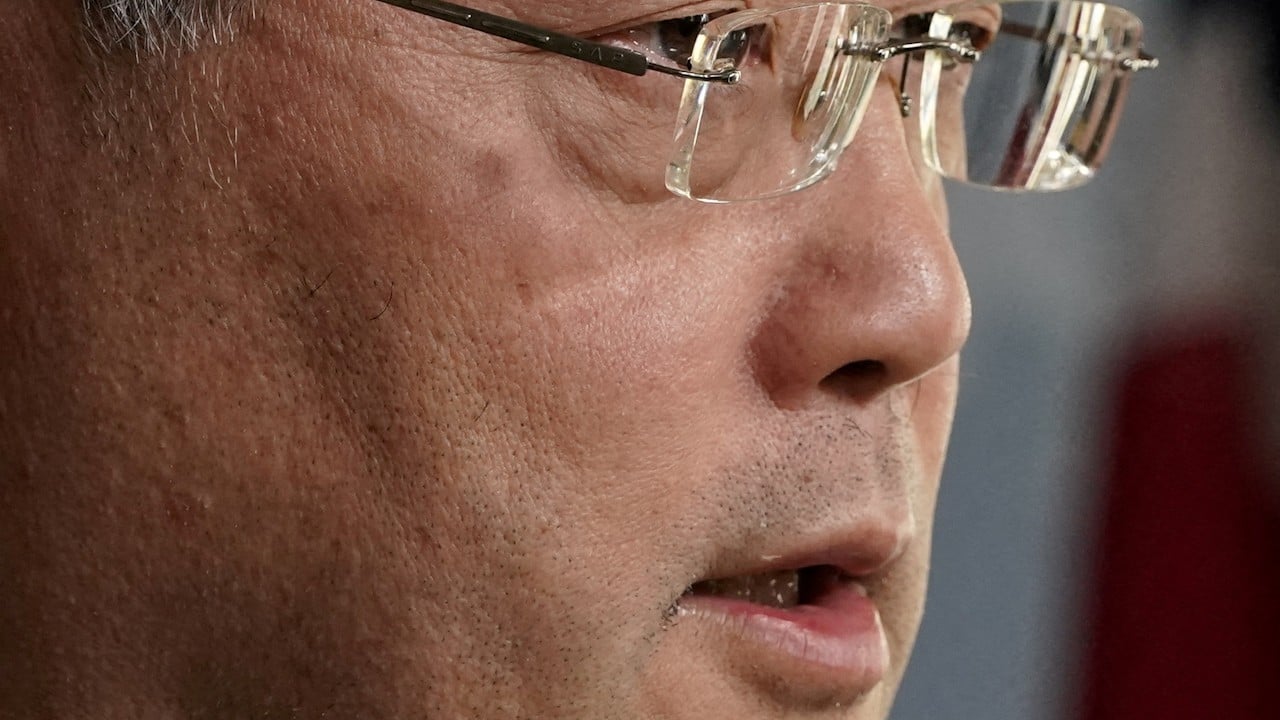
Where in the world is Qin Gang, and why it matters to US-China diplomacy
- China’s foreign minister has not been seen publicly since June 25, and the effects on Beijing’s relations with Washington are growing
- The disappearance, attributed to health reasons, impedes the ability to make headway on a slate of issues before a possible Xi Jinping-Joe Biden meeting in November
The extended absence from public view of Chinese Foreign Minister Qin Gang could have a deleterious effect on US-China relations if it stretches much longer, given the delicate diplomatic dance under way in advance of an anticipated November meeting between the leaders of the two countries, US analysts and former officials said.
But the mystery deepened this week when the foreign ministry refused to provide information on Qin’s status at its daily news briefing, then deleted the question from the official transcript.
“To me this reveals how little we know about Chinese elite politics,” said Rorry Daniels, managing director of the Asia Society Policy Institute.
“It certainly is awkward timing to not have access to the Chinese foreign minister when presumably an item on the agenda is whether or not Xi Jinping is going to come to the United States for the [Asia Pacific Economic Cooperation] summit in November.”
So far, the Chinese Communist Party’s foreign policy chief, Wang Yi – who held the foreign minister job until Qin took over in late December – has stepped in at key meetings, including a regional gathering of foreign ministers in Indonesia and visits by senior American officials.
While personnel issues are a domestic issue, analysts said, Qin’s foreign portfolio lends the absence greater global significance and comes as China and the US have struggled to mend historically bad relations.
Last November in Indonesia, Xi and US President Joe Biden hammered out a road map involving a “step ladder” of ministerial visits aimed at building confidence before the Apec summit.
But in a sign of the relationship’s fragility, the ladder lost a rung in early February after a Chinese surveillance balloon transiting across North America was shot down. US Secretary of State Antony Blinken – Qin’s counterpart – pushed back his planned trip to Beijing by four months.
This in turn compressed the timetable of subsequent visits, and a drawn-out Qin absence could further gum up the works as China’s bureaucracy regroups.
“Protocol is always more important to the Chinese than to foreigners,” said Jeffrey Moon, principal with the China Moon Strategies consultancy. “There are important questions that the foreign minister would weigh in on.”
Traditionally, the foreign minister oversees much of the choreography for important bilateral meetings. Among the immediate considerations normally on his desk would be which US official, if any, to invite for meetings in Beijing.
Commerce Secretary Gina Raimondo is reportedly next up, following visits by Blinken June 18-19, Treasury Secretary Janet Yellen July 6-9 and those just concluded this week by climate envoy John Kerry.
A Qin exit is not expected to affect the broader arc of US-China relations. “Qin Gang, if we assume he’s not coming back, was always an implementer and articulator of China’s strategy, not necessarily a designer of it,” said Ryan Hass, a senior fellow at the Brookings Institution.

“Obviously the Biden administration has invested time and energy in building a relationship with Qin Gang that will be lost. But we can assume that Wang Yi will pick up the slack. We’ve been dealing with him for a long time.”
Even so, any departure could diminish China’s diplomatic presence globally until a replacement is selected, since Beijing now has just a single top official – not two – to represent it at key foreign meetings without a clear explanation of what happened.
“The fact that he’s a high-level diplomat means it will attract attention from countries around the world,” said Bonnie Glaser, director of the Asia programme at the German Marshall Fund. “People will make judgements and draw their own conclusions.”
Moreover, protocol details carry their own weight: Blinken did not get a red carpet on arrival in Beijing and his audience with Xi was rather cool and formal. Yellen was more warmly received but did not meet with Xi, nor did Kerry – instead, Xi gave a speech during his visit superseding any talks Kerry was having with his counterparts.
“Chinese protocol is extremely important and the way that they treated Blinken had to have been evaluated at a much higher level than the working level,” Moon, a former US consul general in Chengdu, said. “So what is the strategy for engaging the United States?”
There’s probably a high degree of curiosity [at the White House] on what’s going on, that’s safe to say
A Qin departure, which most analysts say looks increasingly likely, could also affect other diplomatic and bureaucratic issues. Qin – who was China’s ambassador to the US before his ascension – has developed personal relationships with his foreign counterparts that would have to be rebuilt.
He has also likely surrounded himself with allies in the ministry who may be supplanted, creating bureaucratic turbulence, while other decisions, from the funding of new embassies to facility management and employee benefits, could be delayed.
Also at risk, analysts said, is another goal of the Xi-Biden ladder: working-level meetings that could lead to agreements at any November summit.
While the Biden administration is unlikely to budge on reducing tariffs that had been imposed by the former Donald Trump administration, negotiations could slow over other issues – less onerous visa requirements, say, and more people-to-people exchanges and direct flights – that provide “deliverables” if and when the two leaders meet.

The US also has to adjust. Hass, who was the China, Taiwan and Mongolia director at the National Security Council during the Barack Obama administration, said that the White House is likely trying to figure out what channels of communication remain open and which Chinese officials will carry the process forward.
“And there’s probably a high degree of curiosity on what’s going on, that’s safe to say.”
On Friday, during a wide-ranging discussion of China-related issues, Blinken declined to address Qin’s absence: “I’ll leave that to my Chinese counterparts.”
China has a long history of sudden and often unexplained official absences, particularly seen during the most intense period of Beijing’s anti-corruption campaign. But this one has become more obvious given that Qin is China’s outward face, more often seen abroad than Xi or Wang despite his lower ranking.
“Neither secrecy surrounding the personal lives of senior officials nor their disappearance from public view is unheard of in today’s China,” said Brock Erdahl, deputy manager of Erelas, a risk advisory firm, citing Xi’s own unexplained two-week absence in 2012 and Vice-Minister of Public Security and Interpol President Meng Hongwei, who vanished in September 2018 before reappearing at his corruption trial over a year later.
Erdahl, who monitors Chinese propaganda, noted that Beijing censors have uncharacteristically allowed some online discussion on Qin’s disappearance, resulting in public opinion outpacing any official explanation.
“Rumours tend to fill the void created by official silence, causing the overall narrative to at least temporarily spin out of Beijing’s control both in China and abroad,” Erdahl said, adding that this could inject uncertainty into China’s diplomatic strategy.
Speculation has flourished about the cause, everything from alleged extramarital affairs to political infighting to genuine illness. Construction near the Foreign Ministry reportedly suggested that Qin might need accessible entries. Abruptly cancelled Chinese delegations to the US hint at political turmoil.
“It shows how people are just groping for anything,” said Glaser.
While both sides have an interest in stabilising relations, analysts said the one-way parade of US officials heading to China suggests that the optics of home-field advantage are more important to Beijing than Washington.
While most ministerial meetings have taken place in Beijing, Qin would be expected to visit Washington shortly before any Xi-Biden sit-down to finalise details.
For Beijing, it is important to ensure that Xi would be treated as a respected global leader and not be embarrassed by any unexpected demands or bad publicity.
The White House would want to show that Biden can responsibly manage the vital relationship, drawing a contrast with his Republican counterparts as the 2024 election draws closer.
The two sides must also anticipate and grapple with Taiwan’s coming presidential election in January.
“It’s going to be a mixed and messy picture for the foreseeable future,” said Hass.
Additional reporting by Ralph Jennings


